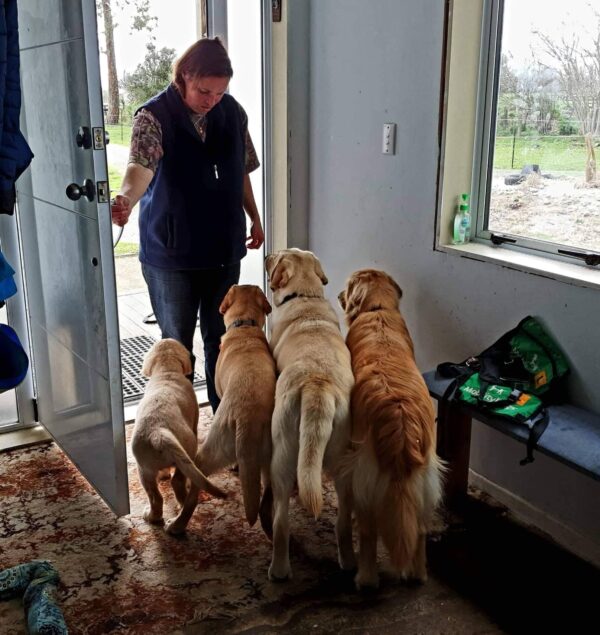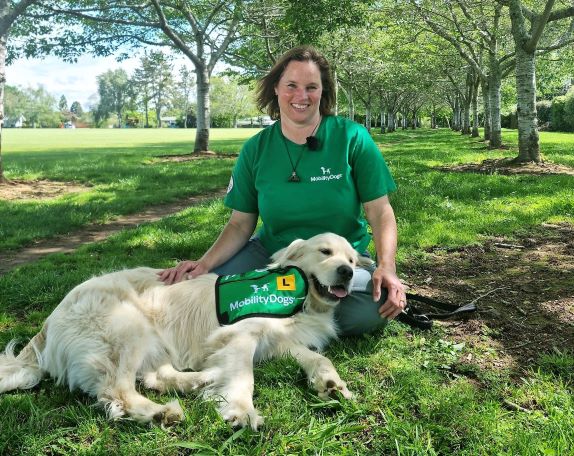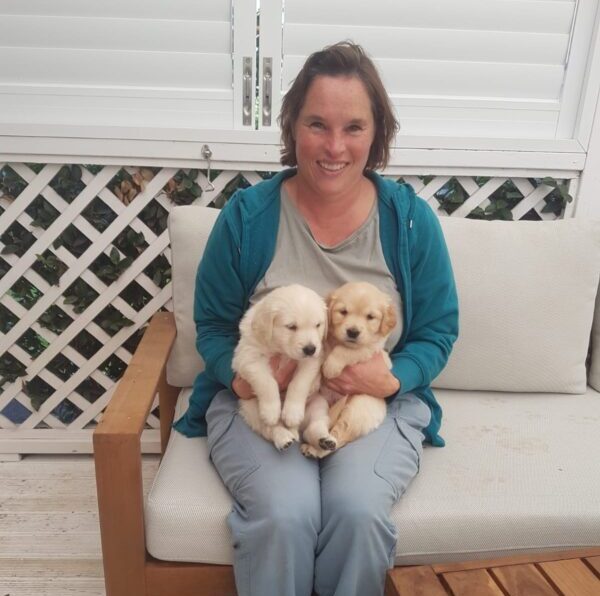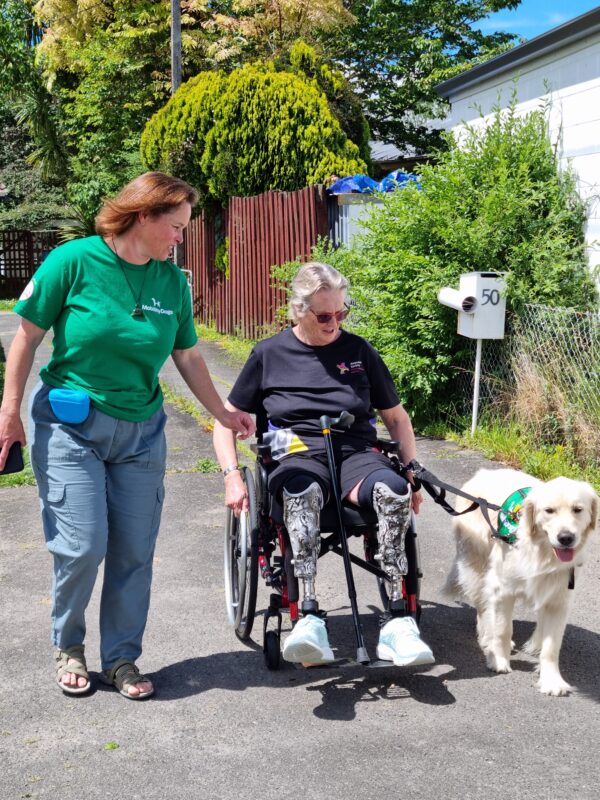Mobility Dogs Senior Trainer – Waikato, Veronica Garcia-Gil tells how she came to work with Mobility Dogs
I was born in Mexico City. My father was Mexican, my mother French. I studied most of my life in Mexico except for 3 years of high school in France, when my family lived there to get closer to my grandmother.
After high school, I went straight onto doing Canine training related courses (Obedience, Agility, Animal Behaviour Diploma). I came to New Zealand in 2012, to do some specialised studies in Animal Behaviour and Welfare. I loved this place so much that my family and I made New Zealand our home.
During my children’s homeschooling years, I started volunteering as a puppy raiser and became the Waikato coordinator for Mobility Dogs. In 2021 when I had no more homeschooling children at home, I started my job with Mobility Dogs as a Senior Trainer. I had been volunteering for 12 years by then.
When did you start working with dogs?
I started working with dogs when I was 18 years old after completing an Obedience Dog Trainer’s Certificate. I soon started doing one on one dog training for clients.
What does your role as Senior Trainer for Mobility Dogs entail?
My role entails helping to do temperament tests to select the puppies entering our training programme, taking care of the puppy raisers and puppy boarders, taking care of our puppies and advanced dogs in training, organising training sessions for our raisers and boarders, organising the resources needed by our puppy raisers and dogs, training the dogs on advanced tasks, and customising our dogs that are working towards placements as well as supervising the placement of our dogs with their new partner.
What is the best part of your job?
Getting to work with dogs all day long, every single day, and being able to make a difference in people’s life. As a bonus I get to wear a green uniform – my favourite colour, and have a dog on my t-shirt – my favourite animal. Couldn’t be better!
What is the hardest part of your job?
The hardest part of my job is taking the puppies away from the puppy raisers. It is always hard to say goodbye to a pup, even if you know they are progressing in their career as a service dog. The other hard part is exiting dogs, as I always feel like I could do more, but there are dogs that do not want to be service dogs and I am not going to force that on them.
How did you first hear about Mobility Dogs?
I first heard about Mobility Dogs in 2010 when I did a unit topic with my children who were homeschooling where we had to investigate all the different service dogs available in New Zealand. At the end of the unit, we decided we were volunteering, and we decided that Mobility Dogs was the one we were going to call first.
What made you want to be a dog trainer?
I have had, my entire life, a fascination for dogs. I remember my dad always telling me to get my face away from strange dogs. They were like a magnet to me. I love doing behavioural modification, as it is not just obedience you are working on, it is the whole psychology and biology of the dog that you need to consider. It is fascinating. You can’t train feelings, you have to work with them, and dogs have feeling too.
Can you describe a standard day in your life as a senior trainer.
No two days are the same but there are some that things happen most days. I always have at least one advanced dog living with me, so that dog starts the day with me and follows me around. Depending on the training needed, that dog will be opening and closing doors for me at home, helping me get dressed and undressed, helping me with the farm chores, carrying objects back and forward for me, walking to the bus to drop and collect my young one from school, go and collect the other dogs for training with me, pick up all the objects I drop, on purpose of course…
Most
The only common factor in every day is that sessions need to be fun, short enough so I don’t lose the dog’s interest, full of patience, motivation and praise, and will always finish with a success note.
I take into account the dog’s feelings and acknowledge them if needed. I do not expect obedience from the dogs I train, I expect cooperation. Then it means we are working as a team, and the dogs perform their work well with respect to the handler, and because they are proud of their job, not from fear of punishment.
I am really passionate about treating animals with respect and I love training dogs.
It is a real passion.



